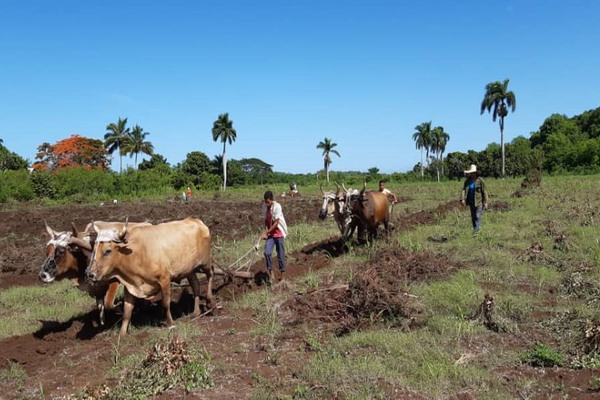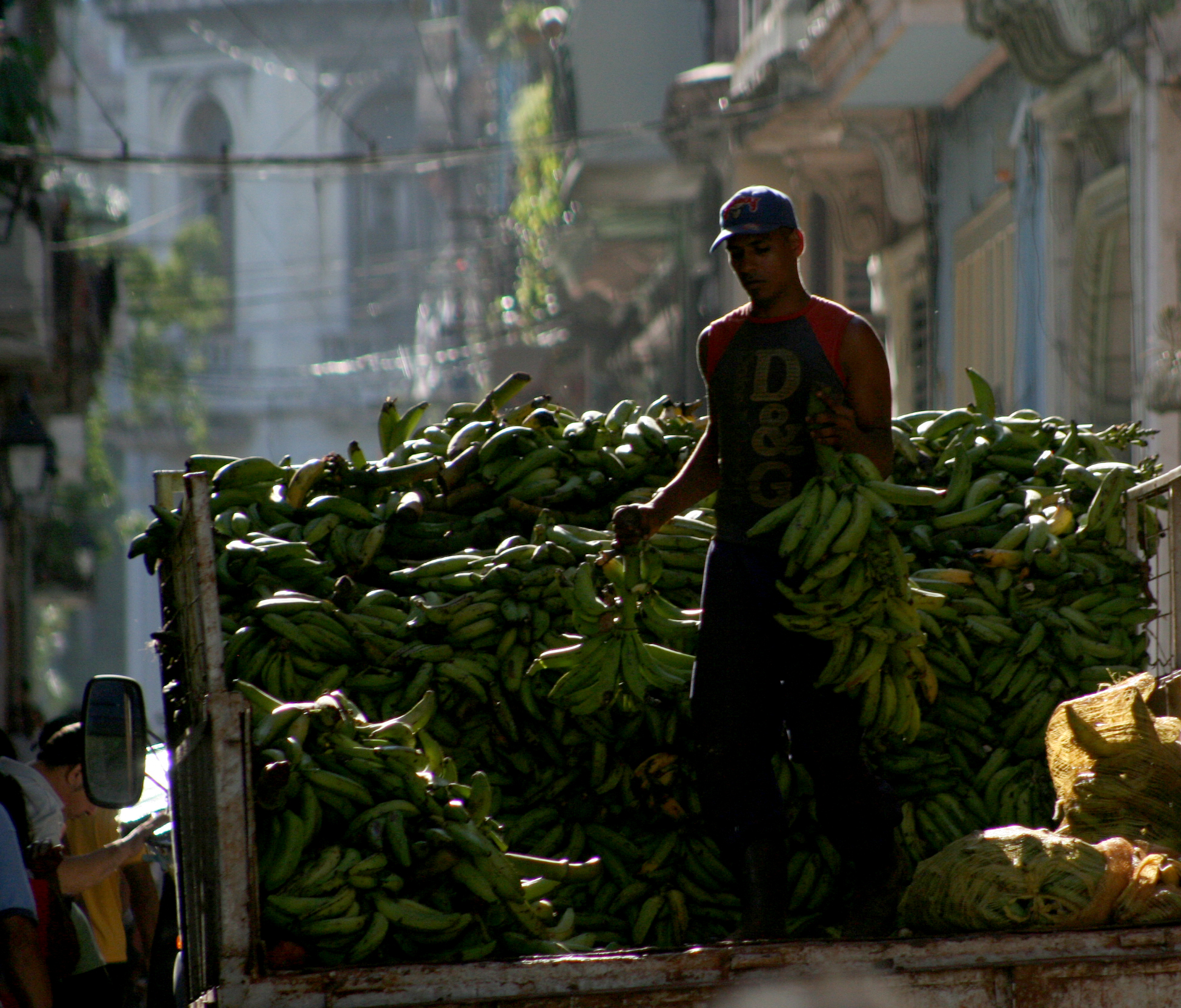Before, if you put in the effort and sacrifice, you were able to live perfectly with what you were able to plant…, today even if you work like a slave, to make a profit from a harvest you have to be a magician
“It looks very nice and it seems easy, even though the life of a farmer is hard wherever you stand,” he said suddenly when he saw me taking a photograph of his field. “But damn … the Cuban peasants have had the worst luck.” Apparently, he saw on my face some look of astonishment and continued. “Come on over to the fence and look under that bush, then surely you will understand me.”

This is how my eyes were opened to a new truth, that although in plain sight, not all of us could see. Venancio Góngora Téllez was born in the heart of the mountains around Guisa in the Sierra Maestra. His seventy-three years of working the land have made him a respected insider on the matter.
“Before, if you put in the effort and sacrifice, you were able to live perfectly with what you were able to plant…, today even if you work like a slave, to make a profit from a harvest you have to be a magician.”
Apart from the fact that you have to deal with the climate, drought or mud, pests, thieves, the lack of appropriate clothing, resources and work tools and the need to take care of the animals; we also have to deal with bureaucracy, non-compliance issues, inconsideration and impositions of the government.” “Because (the regulations) on paper are one thing and the reality is something very different,” he adds.
Theoretically, the farmers must comply and sell a considerable part of their harvest to the State at ridiculously low prices compared to the final price they will be sold at. In exchange for your paying tribute, the Government agrees to provide you with a “Technology Package” to guarantee production, which includes quality seeds, fuel, fumigation and fertilization products, irrigation guarantees, plowing equipment, plowing and harvesting machinery, among other things. As an additional option they offer crop insurance. The rest of the harvest must remain at the disposal of its producer, but its sale to individuals and the self-employed is also subject to regulations.
“They – the state marketers – come and contract the harvest from you and promise you the package, but everything is a lie, we have to put up with hardship for them to authorize it and, even then, there is no guarantee that they will provide you with anything, we continue like the Indigenous people did, plowing with other people’s oxen, sowing what turns up and harvesting by hand. We have to solve the seed ourselves or buy it on the black market and if the harvest suffers some damage, you can hardly ever count on the insurance being paid and asking for a loan from the bank means you will be in debt for the rest of your life.”
“In order to cultivate here you have to rent oxen or tractors, buy fuel, pay day-laborers, guarantee them snacks and lunch, find the means of work, rent backpacks and buy chemicals (for fumigation), among other expenses. There are also thieves, who not only steal your harvest and animals …, they take everything…whatever they can… and if they take the oxen and other animals, even if it is not your fault and the animal is lost, you have to pay for this loss to the State anyway.
“Ah…, and when it comes to what you have left over from the harvest, be careful about selling it to individuals or the self-employed, because they can accuse you of illicit enrichment and confiscate the rest and even the lands and properties if you are someone that has the land through usufruct. Even a legal case can be held over your head,” he adds.

Today very few farmers even have their own team of oxen. Their earnings, diminished by high prices, can barely cover their own needs and the preparations needed for a new harvest. Acquiring a basic tractor, went from being a longed for dream to a kind of unattainable madness.
But the difficulties do not end with the harvest, moving the harvest to its storage site can become an odyssey on its own. Without the possibility of acquiring their own transportation, they must rent something at exorbitant prices and deal with dirt roads that are sometimes impassable due to mud and overall neglect. “And you cannot leave the crops in the field because they will be stolen or you will be forced to let it spoil while waiting for the State to collect its share.”
“For this reason, in these times no one wants to work the soil… not even our own children, who in the long run are the ones who are going to inherit the land,” laments the farmer, while wringing the sweat out of his straw hat. “The lack of motivation for agricultural work is leading to the depopulation of the mountains.
“But wait, I’ll give you a bunch of plantains and some yuccas.” I was going to try to reply but again his words silenced me, “after this conversation, you are sure to appreciate them more than those you have been so far.”

Leave a comment